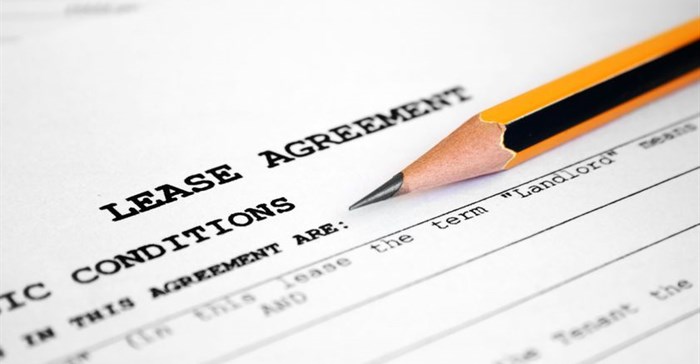Landlords or tenants - who has more rights?

“The reality is that both tenants and landlords are protected by lease agreements,” says Shaun du Bois, master practitioner in real estate and principle of Just Property Pietermaritzburg. “This is why our agents strongly recommend that landlords and tenants agree terms in writing.”
Du Bois cites the following examples of how written lease agreements protect both landlords and tenants, and why it is important for both tenants and landlords to work with letting agents they can trust.
Breaking a lease
In this case, both parties are protected. “In terms of the Consumer Protection Act (CPA), tenants can now give 20 business days’ notice and simply leave,” says Du Bois. “But the Act also allows penalties to be levied against tenants who opt to break a lease early if there is a written, signed lease agreement.”
These penalties are based on various factors, including how long the contract still has to run, and the likelihood of finding a replacement tenant. “Our experience shows that, in most cases, at least one month’s rental may be charged when a tenant has vacated the property early. In some cases, penalties can be as much as three months’ rent,” says Du Bois.
Each situation is different and the CPA does not always apply. “The importance of an astute, well-informed letting agent with access to the best property-law knowledge cannot be underestimated,” adds Paul Stevens, CEO of Just Property Group Holding, which oversees the franchises nationally. “Together with a legal professional, such an agent will help landlords and tenants in dispute discover who has what rights, and negotiate the best solution for both parties. This is one of the reasons we place such emphasis on lifelong learning for all our agents. When leases are signed, everyone is hoping for a long, mutually beneficial relationship. But circumstances change, and when they do, you need to know you’re getting the best advice.”
Why sign a lease if it can be broken?
While a lease may no longer be as binding as it was in terms of time frame, all the other clauses are incredibly important. A good lease agreement may have over 100 clauses, many of which protect the landlord and his asset, and the tenant. These clauses should address both the parties’ obligations as they relate to looking after the property, and make provisions for breaches.
A recent amendment to the Rental Housing Act, 1999 makes it compulsory to reduce all leases to writing. “We expect this amendment to come into effect in early 2018, but recommend that landlords adopt best practice now so that they are not caught unaware part-way through a lease period,” says Du Bois.
Can tenants be evicted?
A comprehensive lease agreement will protect the tenant from any unlawful action, for example in the case of an eviction, says Du Bois. Previously, the landlord had a common law right to evict a tenant if that tenant did not pay his rent. This has changed with the Prevention of Illegal Eviction (PIE) Act. Landlords now have to apply for a court order to have the sheriff remove the tenant and his goods from the property.
Can you customise a lease agreement?
“No lease can contract out of the relevant legislation,” says Du Bois. “Practically, what this means is that tenants and landlords are able to insert clauses they agree upon, but if any clause is in conflict with any legislation, then the latter trumps any terms of the agreement."
What can an agent do to further protect landlords and tenants?
“The value of good rental agents is often underestimated,” says Stevens. “The reality is that the agent works hard behind the scenes to mediate and deal with issues promptly and directly.” This means that landlords and tenants are often unaware of everything that a good rental agent does, but the advantage of having a well-informed go-between who espouses the same values you do, can take a lot of the rancour out of most situations and prevent them escalating.
An agent will act as the intermediary between both parties, negotiating required improvements or repairs on behalf of tenants that in the long run are also in the landlord's best interests. In effect, they ensure a good relationship between parties who frequently have never met each other.
The best scenario for both landlords and tenants is where both parties are conversant with their rights and obligations from the outset. Without a good agent and an excellent lease agreement, this is far less likely. But if one party transgresses the lease agreement, the agent will help facilitate remedial action.
“For example, evictions can take time and be costly,” says Stevens. “The best way to manage this risk is to vet prospective tenants extremely carefully, maintain a relationship with them through annual property checks and, if possible, other forms of communication, and to see to their needs promptly as they arise. This establishes trust and gives opportunities to reinforce the terms of the lease with both parties.”
Stevens believes that it comes down to values. “If the landlord and tenant show respect for each other, the relationship is usually a good one that can last many years. But it starts with a conscientious agent who selects a tenant with good values, draws up a water-tight lease with respect to both parties, and keeps in regular contact.”
Of course, there are exceptions to any rule. To those landlords saddled with a bad tenant, Du Bois says it is critical to have an up-to-date lease that will allow an attorney to take the required action. For example, the landlord may, in terms of his hypothec (a right established by law over a debtor's property that remains in the debtor's possession), attach the tenant’s goods if the tenant has not paid. In certain circumstances this can be done almost instantly. A good managing agent will ensure that lease agreements are up-to-date.